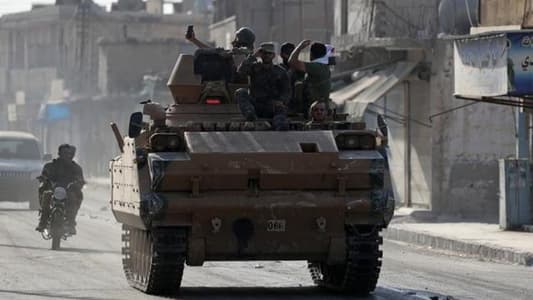The United States said on Sunday it is poised to withdraw some 1,000 troops from northern Syria after learning that Turkey planned to extend a military incursion against Kurdish foes further south than originally planned.
Another consideration in the decision, U.S. Defense Secretary Mark Esper indicated, was that Washington’s Kurdish-led ally, the Syrian Democratic Forces (SDF), were looking to make a deal with Russia to counter the Turkish onslaught.
Outlining Turkey’s goals, President Tayyip Erdogan said the incursion would stretch from Kobani in the west to Hasaka in the east, going some 30 km (19 miles) into Syrian territory, “in line with the safe zone map which we declared previously”.
He told a news conference in Istanbul that the border town of Ras al Ain was already under Turkish control.
Ankara also said Turkish and allied Syrian rebel forces had seized a highway some 30-35 km (18-22 miles) into Syrian territory, which would sever a major artery linking the Kurdish-run regions of war-torn Syria’s north.
An SDF official said clashes were going on along the road.
Reports of civilian casualties also surfaced. A Turkish air strike in Ras al Ain killed nine people including five civilians on Sunday, the Syrian Observatory for Human Rights monitoring group said. The SDF said a “civilian convoy” had been targeted.
Turkey’s offensive aims to neutralize the Kurdish YPG militia, the main component of the SDF and seen by Ankara as a terrorist group aligned with Kurdish insurgents in Turkey. But the SDF has also been Washington’s key ally in fighting that has dismantled Islamic State’s jihadist “caliphate” in Syria.
Ankara’s stated broader aim is to carve out a “safe zone” inside Syria to resettle many of the 3.6 million Syrian war refugees it is hosting. Erdogan has threatened to send them to Europe if the EU does not back his assault.
But the Turkish assault has raised international alarm over large-scale displacements of civilians it has caused and, amidst the upheaval, a heightened risk of Islamic State militants escaping from prisons run by the Kurdish-led authorities.
Women affiliated with IS and their children fled en masse from a camp where they were being held in northern Syria on Sunday after shelling by Turkish forces, the region’s Kurdish-led administration said.
Turkey now faces threats of possible sanctions from NATO ally the United States unless it calls off the incursion. Two other NATO allies, Germany and France, have suspended arms exports to Turkey. For its part, the Arab League has denounced the Turkish offensive as an “invasion of Arab land.”
Sunday’s word of the planned U.S. forces evacuation came after U.S. President Donald Trump abruptly shifted policy and withdrew a smaller number of U.S. troops deployed to support Kurdish forces in the campaign against Islamic State.
That decision in turn helped open the door for Turkey to uncork its offensive against the Kurdish-led SDF.
“In the last 24 hours, we learned that (the Turks) likely intend to extend their attack further south than originally planned, and to the west,” Esper said in a pre-taped interview with CBS.
“We also have learned in the last 24 hours that the...SDF are looking to cut a deal, if you will, with the Syrians and the Russians to counter-attack against the Turks in the north.”
Esper called the situation “untenable” for U.S. forces, saying he spoke with Trump on Saturday night and that the president directed the U.S. military to “begin a deliberate withdrawal of forces from northern Syria”.
On Saturday Trump defended his decision to withdraw some troops in the Syrian border region, telling conservative Christian activists that the United States should prioritize protecting its own frontiers.






TWEET YOUR COMMENT